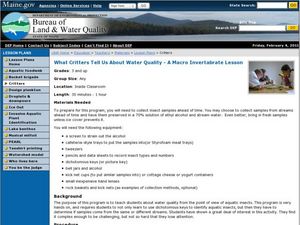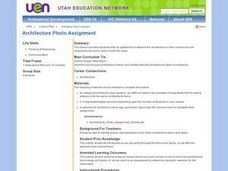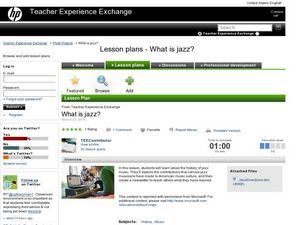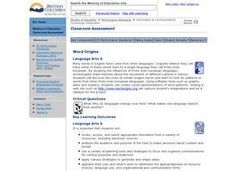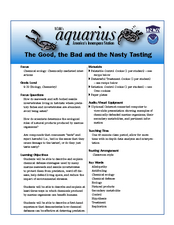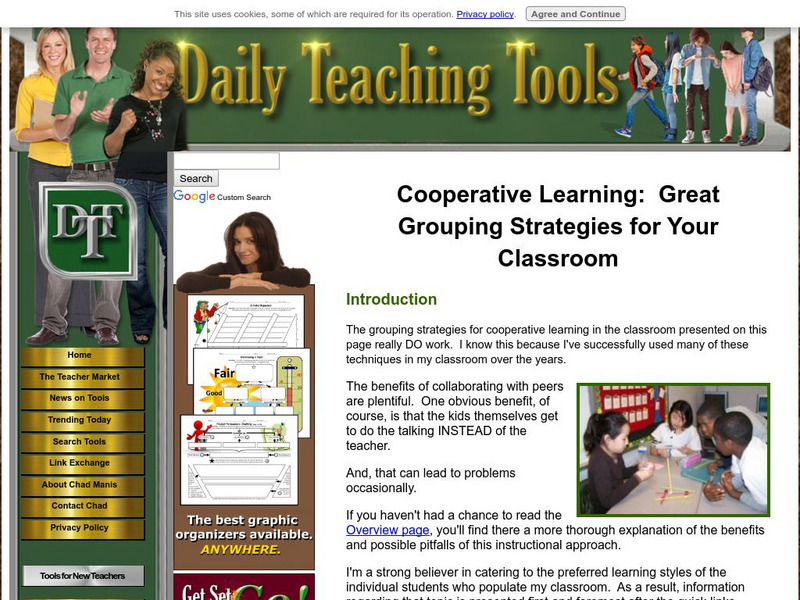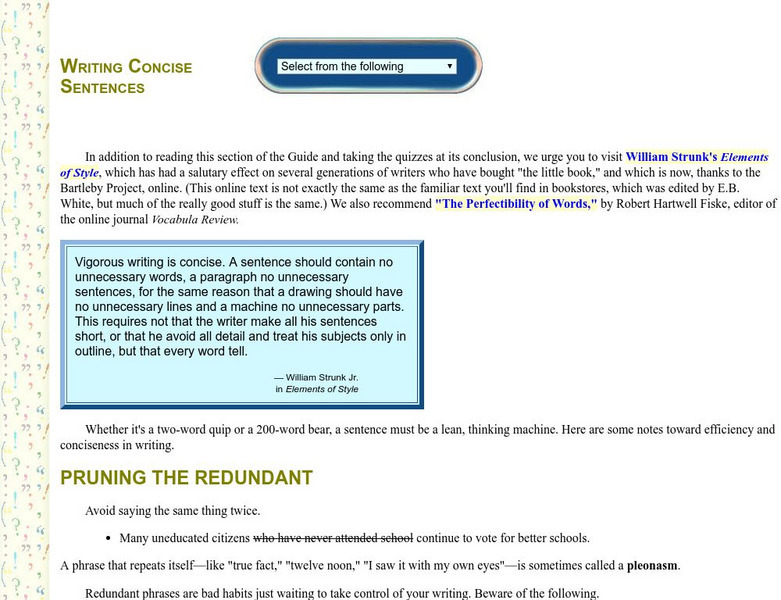Curated OER
What Critters Tell Us About Water Quality: A Macroinvertebrate Lesson
Students explore our ecosystem by investigating the quality of our water. In this aquatic insect lesson, students examine a group of random insects collected from different streams and ponds in the area. Students record their...
Curated OER
Architecture Photo Assignment
Learners are introduced to new vocabulary associated with architecture. In groups, they analyze the architecture of their own home and their neighborhoods and take pictures of what they find. They share their photographs with the class...
Curated OER
Careers
Students discuss job choices, careers, and how they can affect lifestyles. They research a job they are interested in and write answers to questions about that job. They prepare a poster which includes information about the career they...
Curated OER
Looking at Photographs
Sixth graders evaluate photographs as historical documents. In this social studies lesson, 6th graders analyze photographs as propaganda.
Curated OER
5 W's and H
Young scholars explore the 5W's and H of journalistic writing. In this 5 W's and H lesson plan, students read two articles from a newspaper and locate the 5 W's and H in the articles.
Curated OER
First Graders, Fluency and FUN!
First graders develop their reading fluency during the school year. In this language arts lesson plan, 1st graders discover what skilled readers do when they are reading, such as chunking text or thinking about the meaning of the...
Curated OER
Studies of the Eastern Worlds: Cultural Maps
Seventh graders look for similarities and differences in the culture of Eastern World countries by looking at the art from each country. They test their hypothesis and assumptions through further research in the media center. Finally...
Curated OER
Totally Tessellations!
Eighth graders investigate the concept of tessellations and transformations. They create patterns to demonstrate and practice the skill. Students write a description of the pattern for others to interpret. The pattern is assessed...
Curated OER
How To Read A Movie
Ninth graders respond to films they have seen using literary, dramatic, and cinematic terms. They reevaluate their role as a moviegoer. Students analyze their favorite film in order to discover what good films have in common.
Curated OER
Language Arts- Word Origins
Sixth graders locate, access, and select appropriate information from a variety of resources, including electronic sources. They analyze the audience and purpose of the task to make decisions about content and format.
Curated OER
Chuukese Dinner (high School)
Students read journal entries about having dinner with a Chuukese family. Using this information, they identify which foods sound appealing and compare and contrast Micronesian and American foods, fruits and vegetables. In groups, they...
Curated OER
Meet the Press
Young scholars use various types of media to research a historical event of their choice that affects a large language group. In groups, they write a news story and present it to the class. They must note the relevance and impact to...
Curated OER
Glacial Geology in the Field
Students examine the origin of glaciers, how glacial sediments are deposited, and what sedimentary records of glaciation provide about source and process of glaciers in a field lab.
Curated OER
Constructing a Newsletter
Students brainstorm names for a class newsletter. They perform the job of journalists by interviewing, writing paragraphs, and editing. Students scan photographs, add appropriate graphics and look for errors in the final copy.
Curated OER
The Good, the Bad and the Nasty Tasting
Students examine the effect of chemicals from marine plants or animals on predator's preferences. In this ecology lesson, students conduct taste tests and collect necessary data. They write their conclusion after analyzing experimental...
Other
Ld Pride: Learning Styles Explained
LdPride.net offers resources that explain the different styles of learning. Tests can also be found on this site that helps determine which intelligence you favor most.
Daily Teaching Tools
Daily Teaching Tools: Cooperative Learning: Great Grouping Strategies
This Daily Teaching Tools resource provides ways to organize cooperative groups so that meaningful discussion will occur. It also offers a worksheet for determining learning styles that is useful to develop groups. SL.9-10.1c Active Partic
Alabama Learning Exchange
Alex: Which Style Will You Choose?
Students will create a brochure on management leadership styles and determine which style(s) of leadership they feel they would use if they become managers. Students will demonstrate efficient Internet searching skills to collect...
Other
Faces of Learning: Your Learner Sketch
Given several statements, students decide which ones describe them well and which do not describe them at all. Tool uses responses to determine students' strengths and weaknesses in paying attention, thinking spatially, using language,...
Library of Congress
Loc: How to Cite Digitized Primary Sources
Learn from the Library of Congress how to correctly cite the many electronic resources available in their collection. Films, legal documents, photographs, maps, sound recordings and other unusual cases are covered. Be sure you click on...
New Zealand Ministry of Education
Nz Ministry of Education: Hearwaves
Students analyze the language, style, content, advertisements, of radio stations and determine their target audiences. then students create their own radio station targeting a specific audience including news, advertisements, stories,...
Capital Community College Foundation
Guide to Grammar and Writing: Writing Concise Sentences
Why write five paragraphs when you can say what you want to say in two? Learn how to make the most of your words and sentences to get your point across without being too wordy.
Other
Stat Soft: Statistics Glossary
Dozens of statistical terms are defined and illustrated in this glossary.


